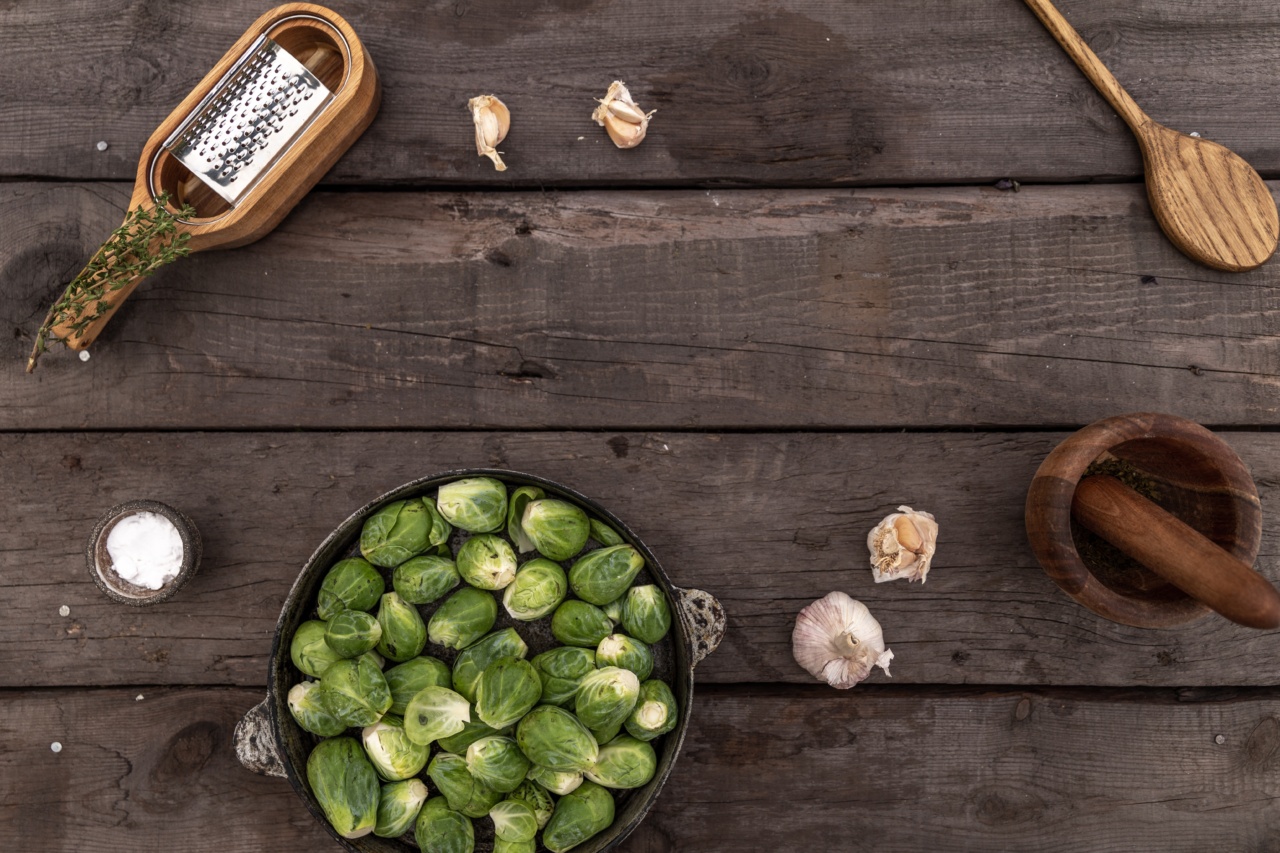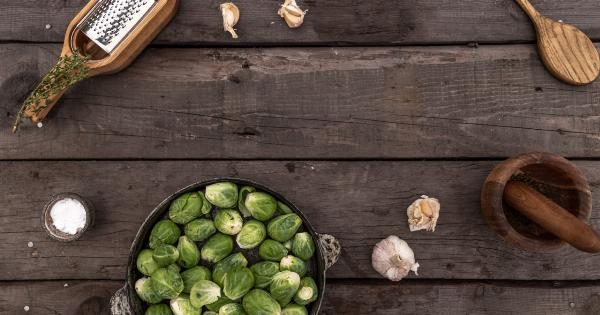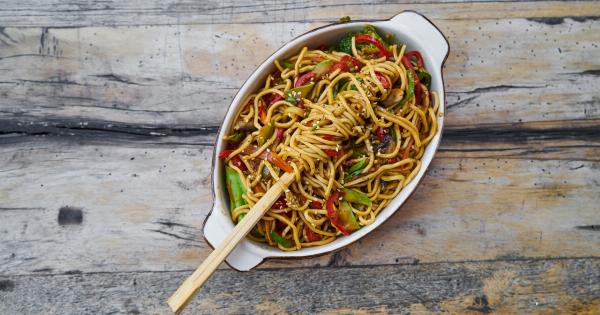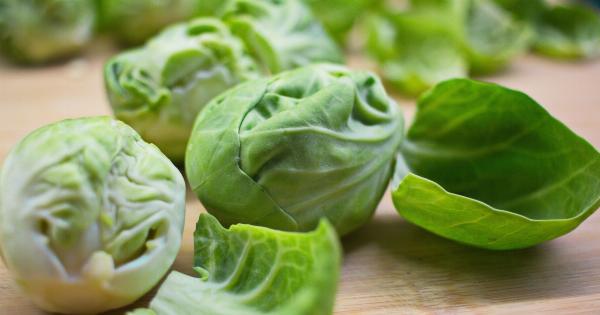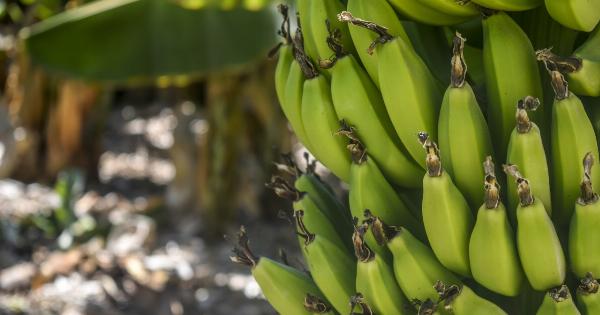Brussels sprouts, also known as miniature cabbages, are a versatile and nutritious vegetable that can be prepared in a variety of delicious ways.
Despite their reputation for being disliked by many, proper preparation and cooking techniques can elevate Brussels sprouts into a delectable dish that everyone can enjoy. Whether roasted, sautéed, or added to salads and stir-fries, Brussels sprouts offer a unique flavor and numerous health benefits. In this article, we will explore the various ways to prepare and enjoy this underrated vegetable.
Nutritional Profile of Brussels Sprouts
Brussels sprouts are packed with vitamins, minerals, and antioxidants that contribute to their health benefits. They are an excellent source of vitamin K, which is essential for blood clotting and bone health.
Additionally, they provide vitamin C, which boosts the immune system and promotes collagen production. Brussels sprouts are also rich in vitamin A, folate, iron, and fiber, making them a nutrient-dense addition to any diet.
Roasted Brussels Sprouts
Roasting Brussels sprouts is a popular cooking method that brings out a sweet and nutty flavor while giving them a delightful crispy texture. To prepare roasted Brussels sprouts, follow these simple steps:.
- Preheat your oven to 400°F (200°C).
- Trim the ends of the Brussels sprouts and remove any yellow or wilted leaves.
- Toss the Brussels sprouts with olive oil, salt, and pepper in a bowl.
- Spread them evenly on a baking sheet.
- Roast for 20-25 minutes, or until the outer leaves are crispy and the inside is tender.
- Remove from the oven and serve hot.
Roasted Brussels sprouts can be enjoyed as a side dish or added to various recipes, such as pasta, grain bowls, or even as a pizza topping. Their versatile flavor pairs well with a range of ingredients, allowing for countless culinary creations.
Sautéed Brussels Sprouts
Sautéing Brussels sprouts is another quick and easy method to highlight their unique taste. Here is a simple sautéed Brussels sprouts recipe:.
- Heat olive oil or butter in a pan over medium heat.
- Add thinly sliced Brussels sprouts to the pan.
- Sauté for 6-8 minutes, or until tender.
- Season with salt, pepper, and any desired herbs or spices, such as garlic or paprika.
- Remove from heat and serve immediately.
Sautéed Brussels sprouts can be enjoyed as a side dish, served with grilled meats or alongside roasted potatoes. Their soft and succulent texture complements a wide range of flavors, making them a versatile and tasty addition to any meal.
Brussels Sprouts in Salads
Brussels sprouts can also be used to add a delightful crunch and unique flavor to salads. When thinly sliced, they offer a refreshing and nutritious twist to traditional salad ingredients. Consider trying the following recipe:.
- Thinly slice raw Brussels sprouts and add them to a bowl.
- Add ingredients such as mixed greens, cherry tomatoes, sliced apples, and crumbled feta cheese.
- Toss the salad with a dressing of your choice.
- Garnish with toasted nuts or seeds for added texture.
This Brussels sprouts salad is not only visually appealing but also provides a healthy dose of vitamins and minerals. The combination of flavors creates a well-balanced and satisfying meal or side dish.
Brussels Sprouts in Stir-Fries
Stir-frying Brussels sprouts allows you to incorporate them into a variety of Asian-inspired dishes. Their tender texture and slightly bitter taste provide an excellent contrast to other vegetables and proteins commonly used in stir-fries.
Follow these steps to prepare a delicious Brussels sprouts stir-fry:.
- Heat oil in a wok or large skillet over high heat.
- Add sliced Brussels sprouts to the pan along with other desired vegetables and proteins.
- Stir-fry for 4-5 minutes or until the Brussels sprouts are crisp-tender.
- Season with soy sauce, ginger, garlic, or other Asian-inspired flavors.
- Serve hot over steamed rice or noodles.
A Brussels sprouts stir-fry adds a nutritious and vibrant element to any dinner table. Its versatility allows you to customize the dish according to your preferences and dietary needs.
Health Benefits of Brussels Sprouts
Brussels sprouts offer an array of health benefits due to their impressive nutritional profile. Including them in your diet can contribute to:.
- Improved digestion: The high fiber content of Brussels sprouts promotes regular bowel movements and supports a healthy digestive system.
- Heart health: Brussels sprouts are rich in antioxidants and anti-inflammatory compounds that help reduce the risk of cardiovascular diseases.
- Lowered cancer risk: The glucosinolates found in Brussels sprouts have been linked to a reduced risk of certain cancers, including colorectal and breast cancer.
- Strengthened immune system: The combination of vitamins C, A, and K present in Brussels sprouts boosts the immune system and helps fight off infections.
- Bone health: The high vitamin K content of Brussels sprouts plays a crucial role in maintaining bone health and preventing osteoporosis.
Adding Brussels sprouts to your diet can significantly contribute to your overall health and well-being.
Conclusion
Brussels sprouts are an underrated and versatile vegetable that deserves a place on everyone’s plate.
Whether roasted, sautéed, or incorporated into salads and stir-fries, their unique flavor and impressive health benefits make them a delightful addition to a well-rounded diet. Give Brussels sprouts a chance, and you may just discover a new favorite vegetable.
